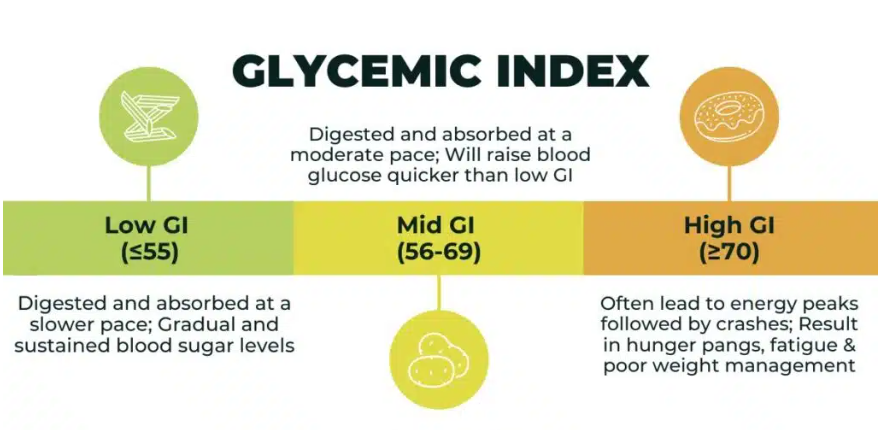The Low Glycemic Advantage: Optimising Your Health Through Smarter Eating
The Low Glycemic Advantage: Optimising Your Health Through Smarter Eating
Amongst the myriad of eating approaches available today, one principle consistently stands out in research: the power of maintaining stable blood sugar through low glycemic index (GI) eating. Let's explore why this approach is gaining recognition for its profound impact on health and longevity.
Understanding the Glycemic Impact
When you choose foods with a lower glycemic index, you're selecting items that don't cause dramatic spikes in your blood sugar. Think of it as choosing the scenic route instead of the motorway – you'll still reach your destination, but without the jarring stops and starts.
This approach works because it addresses one of the fundamental challenges in modern health: insulin resistance. Each time your blood sugar spikes dramatically, your body releases insulin to manage it. Over time, too many spikes can lead to your cells becoming less responsive to insulin – similar to a doorbell that's been rung too frequently.
The Benefits Beyond Blood Sugar
Adopting a lower GI approach extends far beyond just better blood sugar control. Research shows significant improvements in sustained energy levels throughout the day, reduced inflammation markers, better appetite regulation, potential improvement in longevity markers, and enhanced metabolic health.
Practical Implementation
The key is focusing on foods that provide steady, sustained energy release. This doesn't mean eliminating carbohydrates – it means choosing the right ones and combining them thoughtfully with proteins and healthy fats.
Consider swapping high-GI breakfast cereals for wholegrain options, choosing grainy bread over white, and including plenty of fibrous vegetables with your meals. Adding protein to your meals helps further stabilise blood sugar response.
Remember: Small, consistent changes in your eating patterns can lead to significant improvements in your metabolic health over time.
Posted: Wed 05 Feb 2025


